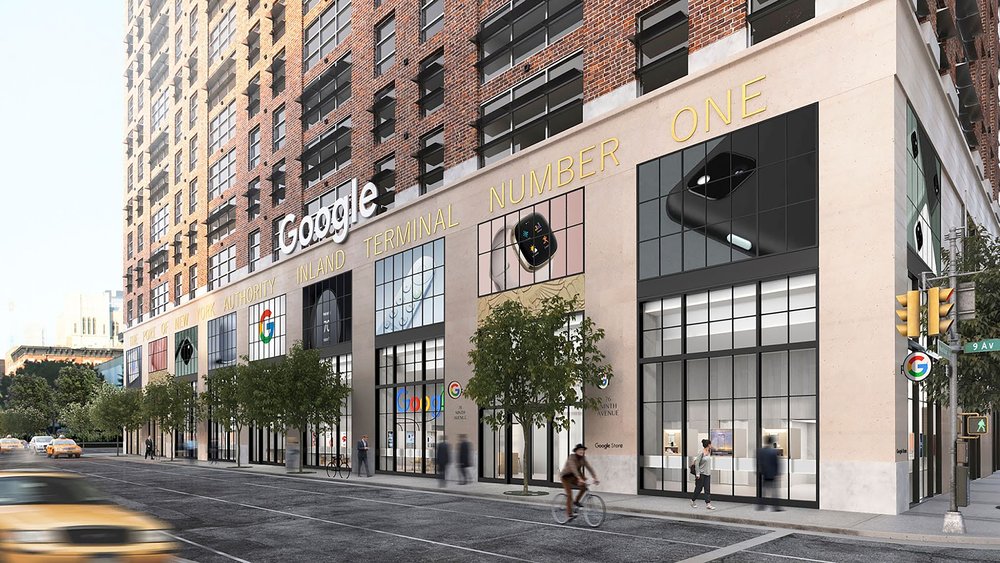

Alphabet’s Google division has reportedly axed yet another wearable project, namely its Project Iris prototype AR glasses .
Business Insider, citing three people “familiar with the matter”, reported that Google is pulling the plug on the glasses-shaped AR wearable and has shelved its plans for Project Iris.
“Project Iris” was Google’s answer to AR headsets from the likes of Meta Platforms and Apple, after Google in May 2022 at its I/O developer conference revealed a new wearable device – namely a prototype AR glasses wearable (dubbed Lens).
Google had been coy back in May 2022 about revealing any of the specific features of Lens, other than one particularly strong augmented reality capability, involving speech recognition.
The translation option allowed the Lens wearer to see on the lens screen what another person is saying – when the other person is speaking in a different language.
This could be a truly incredible development for people visiting foreign countries. Google subsequently added a Google Maps option to the wearable.
And Google in July 2022 revealed it was ready to take Lens into the real world for testing in public settings, nearly a decade after privacy concerns scuppered its first attempt at augmented reality glasses.
The last update to the AR Lens website was on 14 June 2023, when Google touted the search capabilities of the wearable.
But according to Business Insider, all of this may no longer be happening, as Google is reportedly now focused on software instead of hardware.
Indeed, Google is reportedly building a “micro XR” platform it could license to other headset manufacturers – similar to how Google offers Android to a range of mobile phone manufacturers.
However the Business Insider report does hint that Google’s AR headset may still be under development, although this may be via partners that could include the likes of Samsung and Qualcomm.
Indeed, Business Insider’s sources say that Google’s AR headset “were actually the foundations” of the upcoming Samsung headset.
Silicon UK has reached out to Google for comment or confirmation, but at the time of writing has received no response.
Google has a long history in the wearable segment.
It should be remembered that Google had acquired Canadian smart glasses company North in July 2020 for an unspecified amount (thought to be £145m).
North had been known for selling consumers smart glasses called Focals 1.0, which typically retailed for nearly £500. In December 2019 North had announced it would soon launch a 2.0 version of the product, called Focals 2.0.
But Google’s acquisition brought the confirmation that the upcoming Focals 2.0 would not be shipping to customers and previous wearables would stop working.
Google also closed down the North business altogether, shortly after it acquired the firm, although some of its engineers remain Google employees.
But Google’s most famous wearable foray was Google Glass, which was perhaps one of the first truly wearable devices (being over a decade old).
In early 2012 Google co-founder Sergey Brin was spotted in San Francisco sporting the Google Glass, which were augmented reality glasses that provided users with an in-your-face heads up display (HUD) offering information about the weather, messages from friends, or directions around town.
Google Glass was first sold to developers and early adopters in 2013 for $1,500 and it also featured a front-facing camera.
But soon concerns over the safety and privacy of the devices began to hinder its mainstream adoption, with Google Glass in particular coming under scrutiny from US lawmakers on several occasions.
Matters were not helped by its high purchase price (it cost £1,000 in the UK in 2014).
Google then took the decision in 2015, after lacklustre reception to the comical appearance of the wearable device, coupled with the privacy issues, to halt production of its smart glasses for the consumer sector.
However Google did continue selling the wearable for enterprise and business use, with Glass Enterprise being the successor to Google Glass.
Google released a new $999 Google’s Glass Enterprise Edition 2 of the wearable in May 2019.
But sadly in March 2023 Google announced it would no longer sell Glass Enterprise Edition, but would continue supporting Glass Enterprise Edition until 15 September 2023.
OpenAI chief operating officer Brad Lightcap to oversee international expansion as company consolidates lead in…
Chinese researchers publish details on device that could wreak havoc on undersea communications cables in…
Former Intel chief Gelsinger expands role at Gloo, becoming executive chairman and head of technology…
MEPs add to Commission pressure for second EU Chips Act amidst industry calls for renewed…
Smartphone maker Xiaomi reportedly raises about $5.5bn in Hong Kong share sale as it invests…
BYD's Qin L EV sedan starts at about half the price of Tesla's Model 3,…